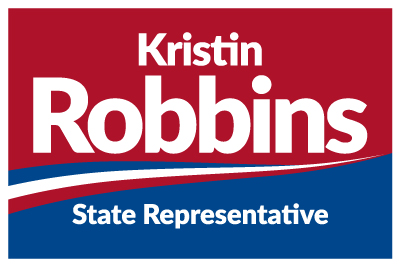Minnesota legislators tangle with tech giants over social media content for kids
A proposal targeting Big Tech’s algorithms has drawn the companies’ intense opposition.
By Briana Bierschbach Star Tribune
One after another, lobbyists from groups with names like Net Choice, Chamber of Progress and TechNet testified in a Minnesota House hearing. Then a rare thing happened in politics.
Republican and Democratic legislators joined forces to rail against some of the business practices used by the companies actually behind the groups — Google, Apple, Amazon, Twitter and other tech giants.
“We cannot wait for the federal government to take action,” Rep. Kristin Robbins, R-Maple Grove, said in the hearing. “They’ve been saying they’re going to do something for too many years.”
As the battle with Big Tech moves from Washington to the states, tech companies have found they have few friends in the ranks of state legislators, who are increasingly worried about the polarizing effects of social media platforms and the potential harm for children. Minnesota’s divided Legislature is coming together on bills to tamp down on their influence this year, including a nation-leading ban on social media platforms using algorithms to target user-generated content to children younger than 18.
The proposal has sparked an intense lobbying effort from tech companies and their trade association groups that have raised the issue of possible free speech violations and argued it could have the unintended consequence of keeping positive content from kids.
“Banning algorithms is not the answer because it’s the algorithms that allow online services to filter out and down-rank inappropriate content and elevate and promote healthy content,” said Adam Kovacevich, founder of Chamber of Progress, a trade group funded by tech companies such as Amazon, Google, Apple and Twitter. “It would be like saying we want cleaner drinking water, but then banning water filters.”
Social media algorithms sort posts based on a user’s data and activity to increase engagement, but they also send other content to users based on their activity.
Robbins, who is sponsoring the proposal in the House, said she was inspired to do something after reading a Wall Street Journal investigation about how algorithms fed a stream of 32,000 posts about weight loss over two months to fake bot accounts posing as teenage girls. Bots that interacted with the content were sent even more of the same content through algorithms.
“I couldn’t sleep for like two nights, it was so disturbing,” said Robbins, who has three daughters. “They suck up all that data and use it to send more content to our children. It’s just to build the business model of these companies. Well, I have no interest in that. We, as the state, have an interest in protecting children.”
Some researchers, parents and teachers have raised the alarm about social media feeds and a rise in depression, anxiety and body image issues among children. Calls are growing from Minnesota Sen. Amy Klobuchar and other federal lawmakers and the U.S. Surgeon General for more transparency from tech companies on how they use algorithms.
Under Robbins’ bill, children younger than 18 in Minnesota would see content from their friends and others they’ve engaged with on social media platforms. They would not see user-generated content sent through algorithms, with some exemptions. One exemption includes algorithms that act as parental controls.
But the Internet — particularly social media — is run on algorithms, which have become an important driver of revenue for tech companies. They argue the proposal is far too broad and there are already parental controls on many platforms.
“Throughout the Minnesota State Fair, it’s hard to find something without butter or deep frying it, but we don’t ban 16-year-olds from buying this, but that’s what we’re doing here for social media,” said Carl Szabo, vice president of Net Choice, a trade association that represents dozens of tech companies. “We’re removing personal choice and responsibility.”
Despite opposition from tech groups, the bill has cleared multiple committees in both chambers with near-unanimous support. Sen. Roger Chamberlain, R-Lino Lakes, is sponsoring the bill in the Senate and pushed back on tech groups’ characterization that the legislation will violate free speech rights. It’s not banning any content, he said, it’s banning the algorithms.
“They know they could stop it, they know they can prevent it, they know there are exceptions. Any defense of this, in my opinion, is indefensible,” Chamberlain said. “This is driven by families, parents and a solid 10 years of research and data and first-hand experience that this stuff is causing intentional harm to our kids and our culture and we need to address it.”
It’s a major next step in the push against Big Tech from legislators in Minnesota, which became the first state last year to establish a program to develop digital well-being education for children.
For the second year in a row, Minnesota legislators also are pushing a bill that would block some tech giants companies from requiring developers to exclusively use one app store or only use an in-app payment system, a proposal that’s also gained traction in other states.
For Rep. Zack Stephenson, DFL-Coon Rapids, the conversation feels reminiscent of the debate lawmakers had in the 1970s and 80s when trade groups testified that cigarettes weren’t bad for people’s health. He included Robbins’ bill in a broader package of consumer and commerce regulatory bills this year.
“It made me feel like someone saying, ‘Boy, you can’t ban kids from smoking cigarettes because then they won’t have the advantage of the filters on the cigarettes.’ It’s just a preposterous argument,” Stephenson said. “As a father of two young children myself, I am very determined to see that we take some corrective action before it’s too late.”
